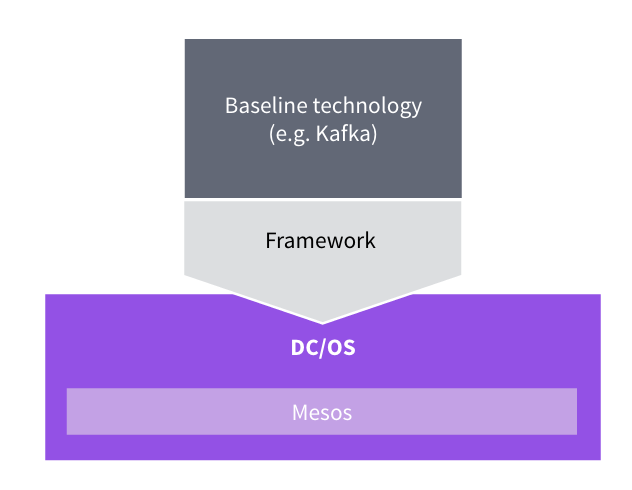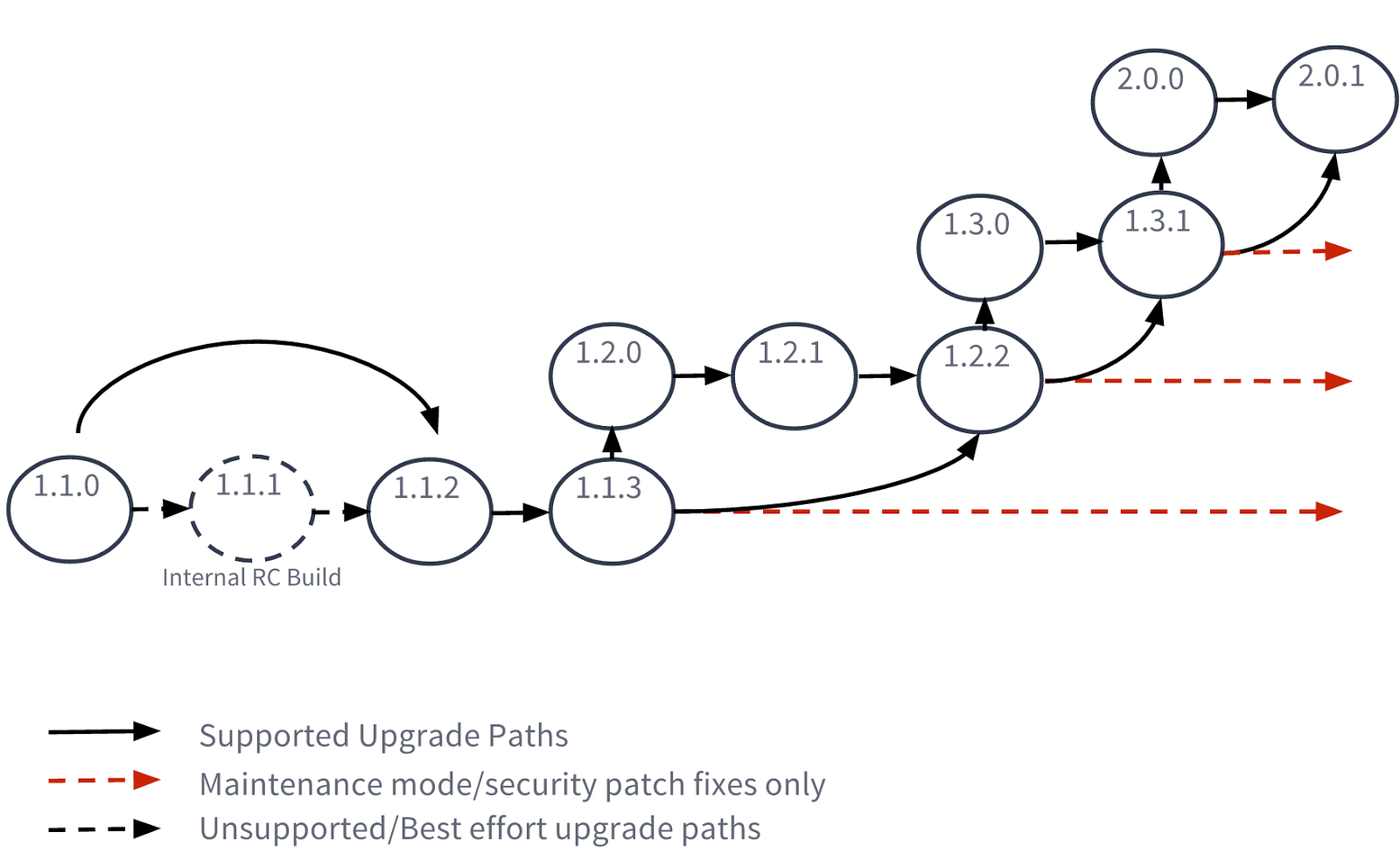The format of Mesosphere DC/OS version number is: <Release>.<Version>.<Minor>.
Release numbering
Release
Modifications or enhancements to the same software product as designated by a change in the R release number. An R release may include new changes and breaking changes. R Releases do not include separate or different products marketed by Mesosphere under a different name even if such products are compatible with the relevant software product.
Version
Modifications or enhancements to the same software product as designated by a change in the V release number. V releases will continue to provide backward compatibility to all released APIs.
Minor
Bug fixes and new enhancements to the same software product as designated by a change in the patch release number. For example, version 5.6.3, means R is 5, V is 6, and M is 3.
Mesosphere Software End of Life Policy
Mesosphere will support product releases for the currently released version (Release N) and the previous 2 feature (major or minor release) releases (Releases N-1 and N-2). At the time of Release N-1, Mesosphere will announce End of Life (EOL) date of Release N-2. When Release N is generally available, Mesosphere will EOL Release N-2.
Here is a hypothetical example to help you understand which version is the supported version.
- May 2020 - Product X v1.0 is released.
- Aug 2020 - Product X v1.1 is released, v1.0 EOL date is announced.
- Nov 2020 - Product X v1.2 is released, v1.0 is EOL’d, v1.1 EOL date is announced.
DC/OS Versions and Mesos Interoperability Matrix
All versions of DC/OS come bundled with a compatible Mesos version, and its release number will be noted in the appropriate DC/OS Release Version release notes.
DC/OS Versions and Service Scheduler Interoperability Matrix
All Mesosphere-driven Service Frameworks and their attached baseline technology will be tested to interoperate with the current DC/OS and the previous DC/OS release. Similarly, every release of DC/OS will support the current available (GA) software that the service scheduler leverages and its previous release. If a DC/OS release supports an older version of the service scheduler, the older service scheduler may not support all of the features provided by the newer version of DC/OS.
For example, if we have three pieces of technology: DC/OS, Framework, and Apache Kafka.

Figure 1. Version policy framework
Our interoperability guarantees in the scenario above will be as follows:
| DC/OS Release | Current DC/OS Release N |
|---|---|
| Framework and Baseline Tech (eg. Apache Kafka ) | Current Framework Version (M+Apache Kafka K) and (M-1+Apache Kafka K-1) |
Mesosphere Versioning and Upgrade Policy

Figure 1. Version policy framework
 DC/OS Documentation
DC/OS Documentation